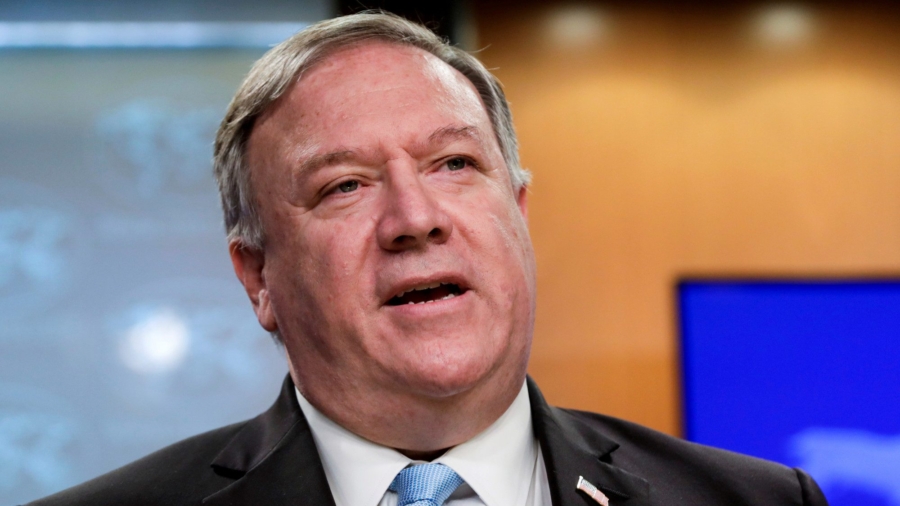WASHINGTON—The Trump administration fired a new shot at the Chinese Communist Party (CCP) on Tuesday by imposing travel bans on party officials it says are restricting foreigners’ access to Tibet.
While waging concurrent battles over Beijing’s policies in Hong Kong, western Xinjiang province, global trade practices, and aggressiveness in the South China Sea, the administration hit an unspecified number of CCP officials with visa restrictions, limiting or entirely eliminating their ability to travel to the United States.
Secretary of State Mike Pompeo announced the restrictions in a statement that accused the CCP of systematically obstructing the travel of foreign diplomats, journalists, and tourists to Tibet, an autonomous region of China.
“The United States seeks fair, transparent, and reciprocal treatment from the People’s Republic of China for our citizens,” Pompeo said. “We have taken several steps to further this goal. Unfortunately, Beijing has continued systematically to obstruct travel to the Tibetan Autonomous Region (TAR) and other Tibetan areas by U.S. diplomats and other officials, journalists, and tourists, while PRC officials and other citizens enjoy far greater access to the United States.”
The statement did not identify the officials that have been targeted or give a number of those affected but said the ban would be applied to Chinese government and communist party officials who are found to be “substantially involved in the formulation or execution of policies related to access for foreigners to Tibetan areas.”
“Access to Tibetan areas is increasingly vital to regional stability, given the PRC’s human rights abuses there, as well as Beijing’s failure to prevent environmental degradation near the headwaters of Asia’s major rivers,” he said.
President of the International Campaign for Tibet, Matteo Mecacci, said in a statement following the announcement: “Through this decision about sanctioning Chinese officials responsible for denying access to Tibet to Americans, the U.S. is sending Beijing a clear message that it will face consequences for its human rights abuses and continued isolation of Tibet from the outside world.
“At the same time, the U.S. government is letting the American people know it will stand up for their rights against China’s discrimination, including the rights of thousands of Tibetan American citizens who simply want the freedom to visit their family members and their ancestral land,” he added.
The International Campaign for Tibet called the move “the most important Tibet legislation to become law in more than a decade.”
Congress and the Trump administration passed the Reciprocal Access to Tibet Act in 2018.
The action comes after many years of U.S. administrations condemning China for its restrictions on foreigners’ travel to Tibet, where human rights activists say Beijing has engaged in a decades-long campaign to suppress local culture, the Buddhist religion and minorities. Permission to travel to the region is rarely granted, and visitors are subject to strict regulations when it is.
The CCP crushed a Tibetan uprising in 1959, forcing the spiritual leader, the Dalai Lama, and over 80,000 Tibetans into exile in India and other countries.
By Matthew Lee.
NTD staff contributed to this report.

